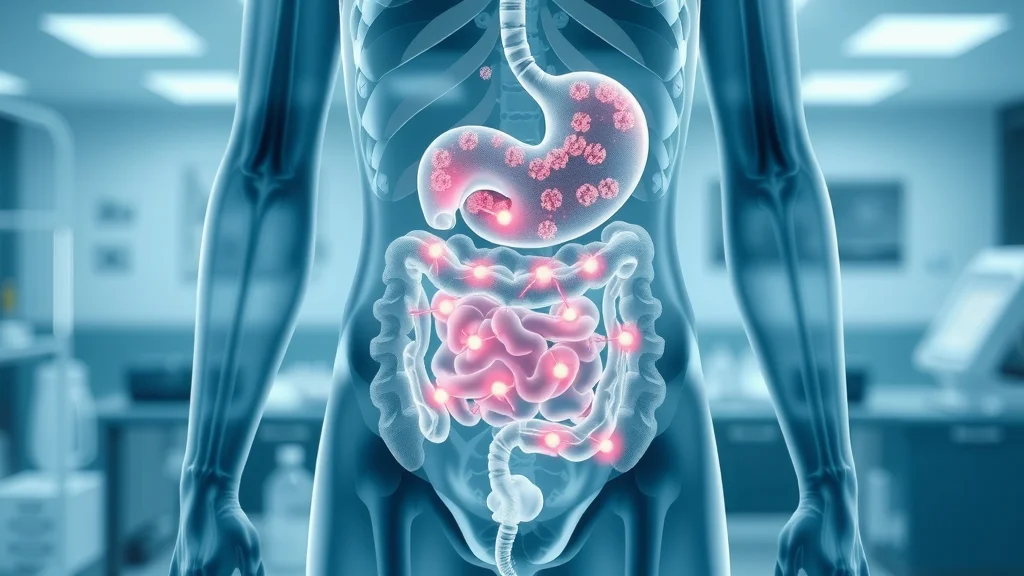Have you ever wondered if digestive enzyme supplements are the secret, under-the-radar solution to shedding those stubborn pounds? Do digestive enzymes help with weight loss, or is this just another overhyped wellness trend?

With so many promising claims and countless products hitting the shelves, it’s easy to get swept up in the excitement. But let’s challenge the hype and dive deeper: is there real science, or just wishful thinking, behind the supplement surge? Let’s break it down once and for all.
Do Digestive Enzymes Help with Weight Loss: Challenging the Conventional Wisdom
"If digestive enzymes were a magic bullet for weight loss, would obesity still be a global epidemic?"
The appeal of digestive enzyme supplements is hard to ignore—after all, who wouldn’t want a simple digestive enzyme supplement to help lose weight that’s as easy as popping a pill with your morning oats? The idea that enzymes could “boost” your metabolism or help your body burn more fat might make sense at first glance, especially when we see words like digestive enzymes, lipase, and amylase splashed across supplement bottles. But the truth is rarely so straightforward. Understanding whether digestive enzyme supplements truly promote weight loss means examining scientific facts, not just clever marketing.
Let’s start by acknowledging a fundamental truth: energy balance—the ratio between calories in and calories out—ultimately determines any change in body fat. Supplements claiming to increase digestion efficiency or reduce weight gain often rely on confusing this fact with the actual science of nutrient absorption and metabolism.
But do digestive enzyme supplements directly lead to weight loss, or are they simply helping the body break down food properly without affecting weight gain, offering benefits more about digestive comfort than the number on the scale? Here’s what the research (and the real world) has to say.
While digestive enzymes play a crucial role in breaking down nutrients, those seeking more targeted fat loss solutions may want to explore how different supplements compare in terms of scientific backing and effectiveness. For a deeper dive into the latest research on top-performing products, check out this comprehensive guide to the best fat loss supplements of 2025 and their science-backed benefits.
Understanding Digestive Enzymes and Their Function

What are digestive enzymes?
Digestive enzymes are specialized proteins that play a crucial role in breaking down food into nutrients your body can use, supporting overall digestive enzyme function. Produced mainly in the pancreas and the small intestine, these enzymes come in several types, including protease (breaks down protein), lipase (breaks down fat), and amylase (breaks down carbohydrates). Without these enzymes, your body would struggle to absorb nutrients efficiently, leading to digestive discomfort and malnutrition. But their function is mostly about effective digestion, not directly about weight control or burning body fat.How do digestive enzymes interact with food breakdown?
Upon eating, your digestive system kicks off a highly orchestrated process: enzymes target specific molecules—proteins, fats, or carbs—and break them into smaller units for absorption in the small intestine. For people with deficiencies (due to genetics, disease like pancreatic insufficiency, or aging), digestive enzyme supplements can help ensure they’re breaking down food properly. For most healthy individuals, however, the digestive system produces all the necessary enzymes to manage a typical diet and energy intake.-
Digestive enzyme types: Protease, Lipase, Amylase, and more
Protease: Targets protein, breaking it down into amino acids for muscle repair and other bodily functions.
Lipase: Responsible for breaking down fats into fatty acids and glycerol so they can be used for energy or stored in fat cells.
Amylase: Tackles carbohydrates, ensuring your body can utilize starches and sugars effectively.
There are other less-talked about enzymes like lactase (breaks down lactose) and maltase (targets maltose), but the “big three” cover most of the action when it comes to digestion and the claims made by dietary supplements.
Digestive Enzymes and Weight Loss: The Science
How Digestive Enzymes Influence Weight Loss and Weight Gain

Energy balance explained:
The science of weight loss still revolves around a basic energy balance equation: when your energy intake (calories in) is less than your energy expenditure (calories out), you lose weight. Digestive enzymes do not directly alter this balance. By helping you digest food more efficiently, they can aid people with deficiencies absorb their nutrients but don’t influence whether calories are stored in fat cells or burned for fuel.Absorption, metabolism, and enzyme activity:
In most healthy individuals, taking digestive enzyme supplements won’t speed up metabolism or change where your body stores or utilizes calories. However, in people with medical issues—like those with pancreatic enzyme insufficiency or certain types of food intolerance—using a pancreatic enzyme or broad-spectrum supplement can help break down food that would otherwise pass undigested. The underlying mechanism isn’t about burning fat, but about avoiding malnutrition and digestive discomfort.
“Digestive enzyme supplements may not directly promote weight loss. However, by improving digestion and nutrient absorption, they could indirectly support a healthier gut environment, which plays a role in weight control.” - Grant Tinsley, Ph.D., CSCS, CISSN, medical reviewer
Digestive enzyme supplement and its purported effects:
While many supplement manufacturers market digestive enzyme products as a solution to promote weight loss, the effects are often indirect at best. Improved digestion may help reduce bloating and feelings of heaviness, making it feel like you have a flatter stomach—but this is not identical to actual fat loss.
Do Digestive Enzymes Help with Weight Loss? Examining the Evidence
Comparative Research: Digestive Enzyme Supplements vs. Placebo on Weight Loss
Study |
Participants |
Supplement |
Duration |
Results on Weight Loss |
|---|---|---|---|---|
Randomized Controlled Trial (RCT), 2020 |
Obese adults |
Digestive Enzyme Supplement |
12 weeks |
No significant effect on weight loss compared with placebo |
Double-Blind Study, 2018 |
Overweight individuals |
Enzyme Blend vs. Placebo |
8 weeks |
Improved digestion; no significant difference in weight loss |
Pilot Study, 2017 |
Adults with indigestion |
Lipase Supplement |
4 weeks |
Reduced bloating; no direct fat loss |
In short, the highest quality research to date finds no direct weight loss benefit of digestive enzyme supplements for the general population. While a small number of studies reported better digestive comfort, none demonstrated clinically significant reductions in body fat or long-term weight control.
Any perceived effect usually comes from reduced bloating or changes in how you feel, not from burning extra calories or fat. This evidence strongly suggests that while digestive enzyme supplements can play a role in specific situations (such as pancreatic insufficiency or lactose intolerance), expecting them to help you lose weight without changes to diet and activity level is unrealistic.
Digestive Enzyme Supplements: Myths vs. Reality

Can digestive enzyme supplements promote weight loss directly?
Unfortunately, there’s no evidence that digestive enzyme supplements directly increase fat loss or help the average person lose weight faster. They’re made to assist people who can’t digest certain foods—for example, lactase for those with lactose intolerance. If anything, more efficient digestion in healthy people could—paradoxically—make it easier to absorb calories, potentially increasing the risk of weight gain if you’re not watching total energy intake.The link between digestive enzyme and weight gain:
There are situations where enzyme supplements can help those who physically cannot break down food properly, but for most, extra enzymes don’t shift the equation in favor of weight loss. In fact, for individuals without digestive enzyme deficiencies, taking extras is not linked to less fat absorption or calorie burning. And yes, for some, better absorption could actually lead to weight gain if total calories go up.Do enzyme supplements help lose weight faster?
Despite marketing hype, you won’t see rapid results. If you’re healthy, your body is already producing what it needs, and there’s no credible evidence that digestive enzyme supplements speed up metabolism or increase the rate at which you burn body fat. For lasting results, focusing on diet, activity, and overall lifestyle is much more effective.
Enzyme Inhibitors and Lipase Inhibitors: Their Role in Weight Management

What are enzyme inhibitors and how do they work?
Unlike digestive enzymes, enzyme inhibitors are substances designed to slow or block the action of certain enzymes. In the context of weight management, lipase inhibitors (like the prescription drug orlistat) reduce the amount of dietary fat your body can absorb by blocking the effects of lipase in the gut. This means some consumed fat passes through undigested, potentially decreasing total calorie absorption—which in specific cases, can help promote weight loss.Lipase inhibitor effects and the science behind fat digestion:
By targeting lipase, lipase inhibitors cause unabsorbed fat to be excreted rather than taken up by the body, which can promote weight loss by reducing fat absorption. A reduction in absorbed dietary fat can tip the balance towards weight loss—but sometimes with unpleasant side effects (like oily stools and digestive upset). The effects of lipase inhibitors should not be confused with the benefits of digestive enzyme supplements, as their mechanisms and targets are fundamentally different.Digestive enzyme supplement vs lipase inhibitors:
While digestive enzyme supplements support food breakdown and nutrient absorption (with no proven weight loss effect in healthy individuals), lipase inhibitors aim to block absorption, resulting in possible decreases in calorie retention. However, the use of enzyme inhibitors is typically only recommended under medical supervision due to potential side effects and complications.
Expert Opinions: What Do the Pros Say About Digestive Enzymes and Weight Loss?
“Digestive enzymes can assist in weight loss by helping the body absorb nutrients more efficiently, stabilize blood sugar levels, and reduce inflammation that may lead to weight gain. But more research is needed to confirm their effectiveness.” - Dr. Melinda Silva, M.D.
Most nutrition experts agree: while digestive enzyme supplements or enzyme supplements like high-potency enzyme blends can help those with true enzyme deficiencies or specific medical conditions, the average healthy adult will not experience significant weight loss just from improving digestive efficiency. Instead, experts recommend sticking to the evidence-based basics—sensible eating, regular movement, and addressing underlying health issues with your healthcare provider when needed.
“Most people with a healthy digestive system already produce enough enzymes to process food without supplements. Digestive enzymes won’t directly help you shed pounds and can actually promote weight gain in some cases by improving fat absorption.” - Dr. Amy Bragagnini, R.D., spokesperson for the Academy of Nutrition and Dietetics
Dietitians particularly point out that for anyone dealing with actual digestive issues (including diagnosed pancreatic insufficiency, celiac disease, or chronic indigestion), a targeted digestive enzyme supplement can make meals more comfortable and improve overall nutrition. But for straight fat-burning, there’s simply no scientific or clinical evidence showing a shortcut. Focus on proven pillars of good health, and reserve enzyme supplements for when they’re truly needed.
Personal Experience: My Journey with Digestive Enzymes and Weight Loss

Why I started using digestive enzyme supplements:
As someone who occasionally struggled with bloating and discomfort after heavy meals, I was curious about whether digestive enzymes could improve my digestion and maybe help with weight loss. After all, if my favorite wellness podcast was touting the benefits, it seemed worth a try, right? I started tracking my experience—jotting down how I felt after meals, how my energy and cravings shifted, and whether the scale moved at all.Did I lose weight with digestive enzymes?
Honestly? While I noticed that my stomach felt less heavy after certain meals—and, yes, sometimes I looked a bit less bloated—I didn’t actually lose meaningful weight. My overall body fat percentage and weight stayed the same, proving that effective weight loss takes more than a supplement. Feeling less “puffy” is nice, but it’s not the same as changing your energy balance or shrinking fat cells.Unexpected effects and lessons learned:
What surprised me most was how my mindset changed. By focusing on my digestion, I became more mindful of what and how much I ate. I noticed that pairing supplements with healthier choices—like more vegetables and fewer processed snacks—helped far more than any enzyme capsule alone. Ultimately, digestive enzymes supported my gut, but not the scale.
Do Digestive Enzymes Help with Weight Loss? Common Benefits and Limitations

Digestive health improvements
The biggest strength of digestive enzyme supplements is their ability to support digestive comfort and efficiency, particularly for those who experience gas, bloating, or difficulties digesting certain foods. If your gut isn’t happy, neither are you, and addressing those issues can make sticking to a weight control plan a lot easier.Potential digestive enzyme side effects
Like any supplement, enzymes aren’t risk-free. Some users experience mild side effects like stomach upset or allergic reactions, especially if they have sensitivities to pork-, plant-, or fungal-derived enzyme blends. Others may notice changes in bowel habits. For most, side effects are rare—but always read the ingredient list and check with a healthcare professional.Role in overall gut health
When used purposefully and supported by a healthy diet, digestive enzyme supplements can promote regularity and improve tolerance to difficult meals. The upside is feeling better day-to-day rather than seeing dramatic changes on the scale. Remember: digestive comfort is a worthy goal, even if it’s not synonymous with weight loss.
Choosing the Right Digestive Enzyme Supplement for Your Goals

Read the ingredient list: Protease, amylase, lipase
Look for a supplement that contains the enzymes suited for your issues—protease for proteins, amylase for carbs, and lipase for fats. Avoid catch-all blends unless you know your specific needs.Consult with a healthcare professional
If you’re not sure about your actual digestive health status or are considering a supplement for ongoing symptoms, talk to a doctor or registered dietitian first. They can help you determine whether you need a digestive enzyme supplement or should look into other digestive or dietary adjustments.
Other Strategies to Promote Weight Loss Effectively
Watch: Animated explainer video summarizing the roles of digestive enzymes, balanced nutrition, and lifestyle choices in sustainable weight loss. (Coming soon!)
Balanced diet vs. digestive enzymes:
No supplement can replace a diet rich in whole foods, fiber, lean proteins, healthy fats, and complex carbohydrates. While enzymes might help some people digest food more comfortably, eating in a calorie-controlled, nutrient-rich way is still the most proven path to sustainable weight loss.Exercise and lifestyle changes:
Physical activity is a proven way to shift your energy balance and lose weight. Combine movement with a healthy eating pattern for the biggest impact—supplements alone won’t cut it.When to consider enzyme supplements as part of your plan:
If you have a diagnosed enzyme deficiency, digestive disorder, or trouble digesting specific foods, enzyme supplements may be helpful. For everyone else, focus on the basics before turning to bottles or pills.

FAQs: Do Digestive Enzymes Help with Weight Loss?
Do digestive enzymes flatten the stomach?
Digestive enzymes may help reduce bloating for some, which can make the stomach appear flatter, but this effect is related to improved digestion rather than actual weight loss or fat loss. Any visual change is typically due to improved digestion, not to decreased body fat or weight loss. For sustained results, focus on overall health and lifestyle habits.
Is there a downside to taking digestive enzymes?
Some people may experience side effects such as digestive discomfort, allergic reactions, or negative interactions with medications. It is always best to consult a healthcare provider before starting any new supplement, especially if you have underlying health conditions or are on medications.
What enzyme helps with weight loss?
Lipase is the main digestive enzyme linked to fat metabolism, but its direct impact on weight loss in healthy individuals is small unless medically indicated. Most people do not see meaningful weight reductions simply by taking a lipase supplement.
People Also Ask About Digestive Enzymes and Weight Loss
Do digestive enzymes flatten the stomach?
Digestive enzymes may help reduce bloating for some, which can make the stomach appear flatter, but this effect is related to improved digestion rather than actual weight loss or fat loss.
Is there a downside to taking digestive enzymes?
Some people may experience digestive discomfort, allergic reactions, or negative interactions with medications. Consulting a doctor is advised before starting any supplement.
What enzyme helps with weight loss?
Lipase is the main digestive enzyme linked to fat metabolism, but its direct impact on weight loss is small unless medically indicated.
Key Takeaways: Do Digestive Enzymes Help with Weight Loss?
Digestive enzymes support digestion, but evidence for weight loss is limited.
Enzyme supplements may be helpful in specific deficiency cases.
Healthy lifestyle choices remain most effective for promoting long-term weight loss.
Ready to Optimize Your Gut Health and Weight? Download Our Free Guide for Evidence-Based Tips!
Take charge of your journey: download our free guide for science-backed tips on digestive enzyme supplements, weight loss strategies, and how to maintain a healthy energy balance to reach your wellness goals—no fads or fluff, just real results.
Conclusion
Digestive enzyme supplements support digestion but do not replace proven weight loss strategies. Focus first on a healthy lifestyle and consult your doctor before supplementing for best results.
If you’re interested in taking your wellness journey a step further, consider exploring how the foods you eat may be influencing not just your weight, but also your joint health and overall inflammation. Understanding the root causes behind persistent discomfort can empower you to make smarter dietary choices that benefit your whole body.
For a broader perspective on how nutrition impacts more than just the scale, discover the key foods that could be fueling joint pain and learn actionable strategies to combat it in this in-depth guide to the root causes of joint pain. Unlocking these insights can help you build a more holistic, sustainable approach to health and vitality.
Sources
NCBI – https://www.ncbi.nlm.nih.gov/pmc/articles/PMC5439345/
Healthline – https://www.healthline.com/nutrition/digestive-enzymes-and-weight-loss#section1
Mayo Clinic – https://www.mayoclinic.org/digestive-enzymes/expert-answers/faq-20058227
Medical News Today – https://www.medicalnewstoday.com/articles/digestive-enzymes-and-weight-loss
While digestive enzymes are essential for breaking down food and aiding nutrient absorption, their role in weight loss is not straightforward. According to Johns Hopkins Medicine, for most healthy individuals, the body naturally produces sufficient digestive enzymes, and supplementing with additional enzymes is unlikely to promote weight loss. (hopkinsmedicine.org)
However, in cases where individuals have enzyme deficiencies—such as exocrine pancreatic insufficiency (EPI) or lactose intolerance—supplementing with specific digestive enzymes can improve digestion and nutrient absorption. This can alleviate symptoms like bloating and discomfort, but it does not directly lead to weight loss. (hopkinsmedicine.org)
It’s also important to note that some weight loss medications function by inhibiting digestive enzymes. For example, lipase inhibitors like orlistat reduce fat absorption by blocking the activity of lipase, leading to weight loss. However, these medications are typically prescribed under medical supervision due to potential side effects. (en.wikipedia.org)
In summary, while digestive enzyme supplements can aid individuals with specific digestive disorders, they are not a proven method for weight loss in the general population. Focusing on a balanced diet and regular exercise remains the most effective approach to achieving and maintaining a healthy weight. NCWellnessHub.com
 Add Row
Add Row  Add
Add 




Write A Comment